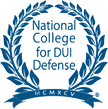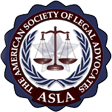Washington Criminal Courts: What to Know
There are several steps in the court procedure for criminal cases in Washington. You must understand those steps and any associated deadlines. If you miss a court date or hearing, you may have additional penalties imposed upon you.
The Arraignment Process in Washington
At an arraignment, the court will advise you of the charges, the potential penalties stemming from these charges, and your rights, including the right to legal counsel, the right to remain silent, and the right to a jury trial.
The judge may issue a probable cause finding after reviewing the probable cause statement submitted by the prosecution. After reviewing this evidence, the judge may impose conditions for your release. In other cases, you may need to post bail.
If you are accused of a non-Domestic Violence or non-DUI misdemeanor or gross misdemeanor, your Seattle criminal court attorney can usually waive your appearance at the arraignment hearing. This means you will not have to appear for the arraignment and the court will set a pre-trial hearing instead. This waiver of your arraignment will advance you to the next phase of your case.
Pre-Trial Procedure in Washington State Courts
The pre-trial hearing is the next step in the court process. This is the point of the process where your attorney reviews the police report and begins to work toward a resolution. Your attorney may be able to negotiate a favorable resolution during this time. If a plea is not reached at this stage, the case will progress toward a trial.
If a plea agreement is not reached, the court will issue a pre-trial order that includes a schedule for motions to be argued in the case, important dates coming up, and defense assertions offered by the defense. The order will state the names of witnesses the defense and prosecution intend to call to the stand if the case proceeds to trial.
Motions Hearings
Motions may be initiated by the defense or prosecution to address anticipated issues with evidence. The court will schedule a date to address these motions. In some cases, motions may be handled at the beginning of a trial.
The various motions available include motions to suppress evidence, motions to suppress statements, and motions to dismiss. Other motions may be available for either side to make, depending on the facts.
Readiness Hearing
Before the trial date arrives, most courts schedule a readiness hearing, otherwise known as a jury call. This hearing aims to have both the defense and prosecution confirm the case is ready for trial. At this stage, the parties can again negotiate a plea.
Trial
Most criminal trials in Washington are jury trials. However, in certain circumstances, having a case tried before a judge may be advantageous. These cases are referred to as “bench trials.” As the defendant, you must waive your right to a jury trial to obtain a bench trial. You should avoid waving this right unless you have thoroughly discussed the matter with your Seattle criminal court attorney.
A trial starts with the selection of jurors. Both sides question prospective jurors and then challenge them to determine if they have any biases. Jurors left after these challenges are completed are chosen for the jury.
The case is tried with both the prosecution and defense giving opening statements, calling, questioning, cross-examining witnesses, and presenting closing arguments. The jury (or judge) deliberates and reaches a verdict of not guilty or guilty.
On occasion, a hung jury may result. A hung jury means that all of the members of the jury could not agree on a verdict. If this happens, the court will declare a mistrial, the prosecutor will decide whether or not to retry the case.
Sentencing in Washington
If you are found guilty or enter a guilty plea, the case proceeds to the next step: Sentencing. The sentencing hearing may occur on a separate date or immediately after the guilty plea or verdict is issued.
At a sentencing hearing, the prosecution and defense independently recommend a sentence to the judge. The defense and the defendant can also speak to the judge. After both sides are heard, the judge imposes a sentence.
Probation & Review Hearings
The court will often set conditions you are required to meet in conjunction with your sentence. For instance, part of your sentence may include formal probation that requires compliance with alcohol treatment or completion of community service hours.
The court may schedule a review or show cause hearing at the sentencing hearing as the next step in the criminal court process. At this hearing, the court can evaluate your compliance with the conditions set at sentencing. Often, a review or show cause hearing is scheduled when the court is informed of a potential violation of one or more of the conditions of your probation.
If the court finds that you violated the conditions of your sentence, you may be subject to jail time or other consequences.






